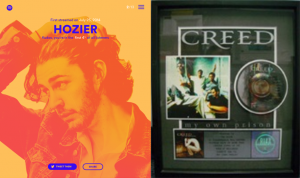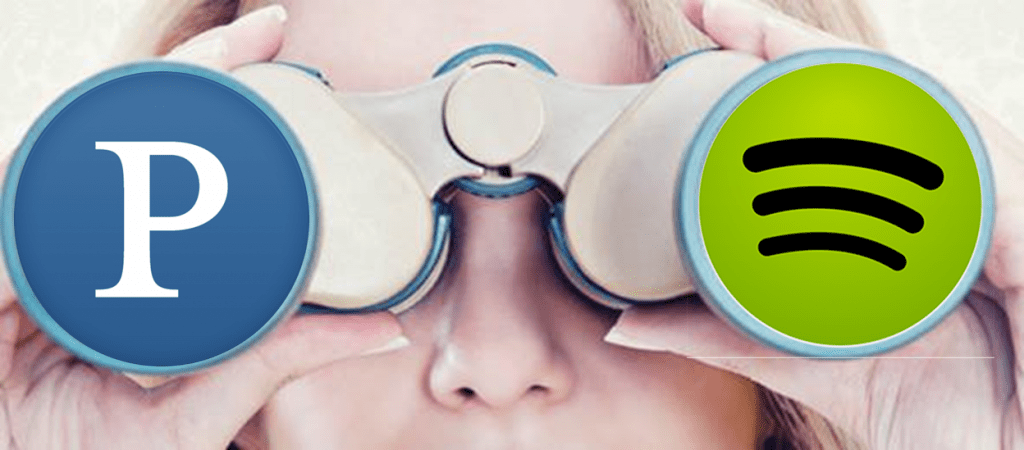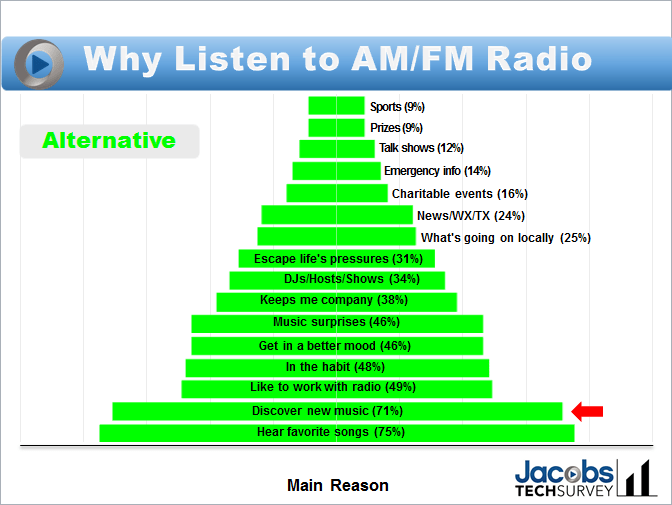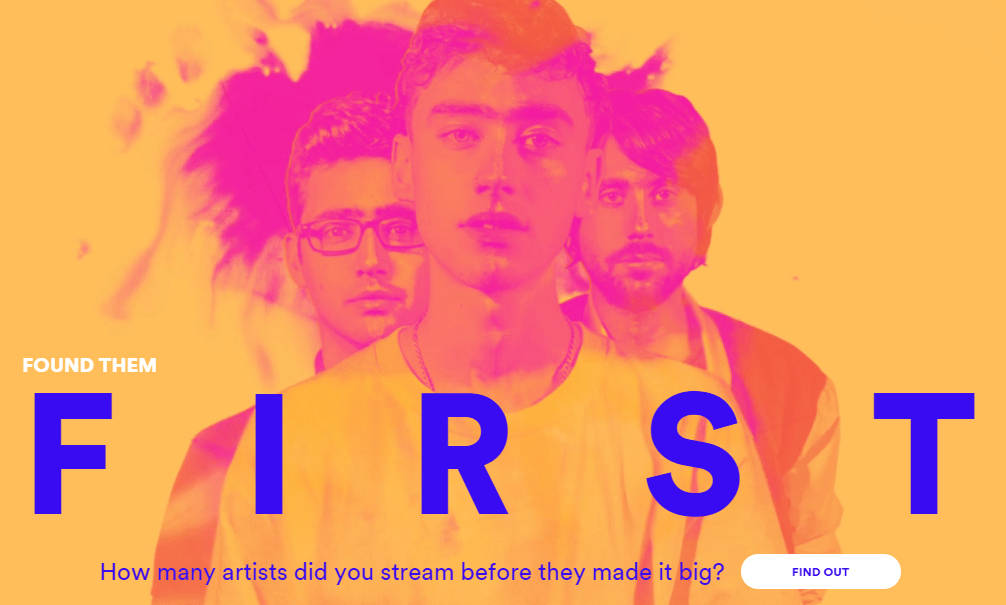Pandora and Spotify are altering the very definition and scope of new music discovery. And they’re doing it by turning the personal spotlight on fans.
Readers of this blog and stakeholders in our Techsurveys have learned about the value of this listening benefit – especially in the Alternative format. Whether it’s finding out about new songs, baby bands, or local music, the research all underscores the value of the new stuff.
The “Why Listen?” data in TS11 among Alternative partisans underscores this key rationale for choosing broadcast radio. Second only to hearing favorites, discovering those new tunes and emerging bands is a strong motivator. In fact, seven in ten of these listeners cite new music discovery as a main driver for listening to the radio.
That’s all well and good, but recent focus group discussions with Alternative fans indicate the bar on music discovery has been raised – and Pandora and Spotify are the apparent culprits.
Both services are very popular among those who prefer bands like X Ambassadors, Vance Joy, and the Kongos. And whether music lovers enjoy the more passive algorithmic approach of Pandora or the more active playlist-building activity on Spotify, their ability to find out about new music just keeps getting easier, more seamless, and very social.
At a recent Advertising Week panel discussion, the CMOs of both Pandora and Spotify made a rare appearance together, using the session to discuss their services, the state of new music discovery, and the importance of connecting with Millennials. Moderated by Fast Company’s Rob Brunner, Pandora’s Simon Fleming-Wood and Spotify’s Seth Farbman were very much on the same page when it came to connecting with Gen Y.
Spotify’s Farbman talked about the importance of the new music discovery experience, and how Millennials enjoy sharing their musical finds with others.
A Spotify “experiment” called “Found Them First” caters to the emotional power of being the first to discover a new band, and share it with friends. It all starts with data. The wizards at Spotify are able to break down their users’ streams to zero in on the artists they played early on.
By crediting consumers with being stakeholders in helping others find out about new bands, Spotify uses the impact of individual users to make a stronger connection. And in the process, they credit they user base by giving them the kudos for discovering new artists.
Ironically, that very same emotion is something that many radio programmers and music directors understand very well. Most radio stations are covered with the gold and platinum evidence of their prescient decisions to give early airplay to new bands. There are countless PDs and MDs from the past and today who display those mementos proudly.
Now Spotify is turning that mentality on its head, giving their consumer base the chance to experience that same feeling – and share it with their friends. There’s a strong feeling of pride in knowing that a band that you liked early on went on to become popular, and enjoyed by millions.

As Farbman pointed out, Spotify users are able to see answers to the question – “How many artists did you break?”
And that’s a question that many of radio’s music directors just love to answer, especially at industry conferences and conventions.
For radio, the ways in which both Spotify and Pandora are using their massive data to connnect with audiences all point to how these services feature personalization, shining the light on fans.
And it means that because of the data power and creativity of these streaming services, radio broadcasters would be wise to rethink how they execute and present music discovery. The key is in realizing how radio can still provide a unique and personal experience to a young audience whose choices and preferences are undergoing massive change.
It has to make you wonder whether Spotify will start handing out satin jackets and virtual gold records to its subscribers.
Thanks to Steve Goldstein for making me aware of the Advertising Week panel.
- What To Do If Your Radio Station Goes Through A Midlife Crisis - April 25, 2025
- A 2020 Lesson?It Could All Be Gone In A Flash - April 24, 2025
- How AI Can Give Radio Personalities More…PERSONALITY - April 23, 2025







Interesting discussion for Alternative. RBR had a headline this morning from an interview with Ronnie Dunn (Brooks & Dunn)that speaks more to the mainstream – thought I’d share it here:
Speaking to “Taste of Country,” the country star said, “If you’re gonna be heard, you have to get on radio.” Dunn had tried going alone as an independent artist but has since circled back and signed with Nash Icon Records.
The difference, as I see it, is Spotify serves the niche, while Radio breaks music with the masses. Let’s not believe the sky is falling when it comes to Radio’s importance for new music.
Charlie, virtually every artist in in agreement that radio play is mandatory to breaking hits. The challenge is with Millennials and their changing music consumption habits. For radio, doing it the same old way is already falling short. Thanks for the comment.